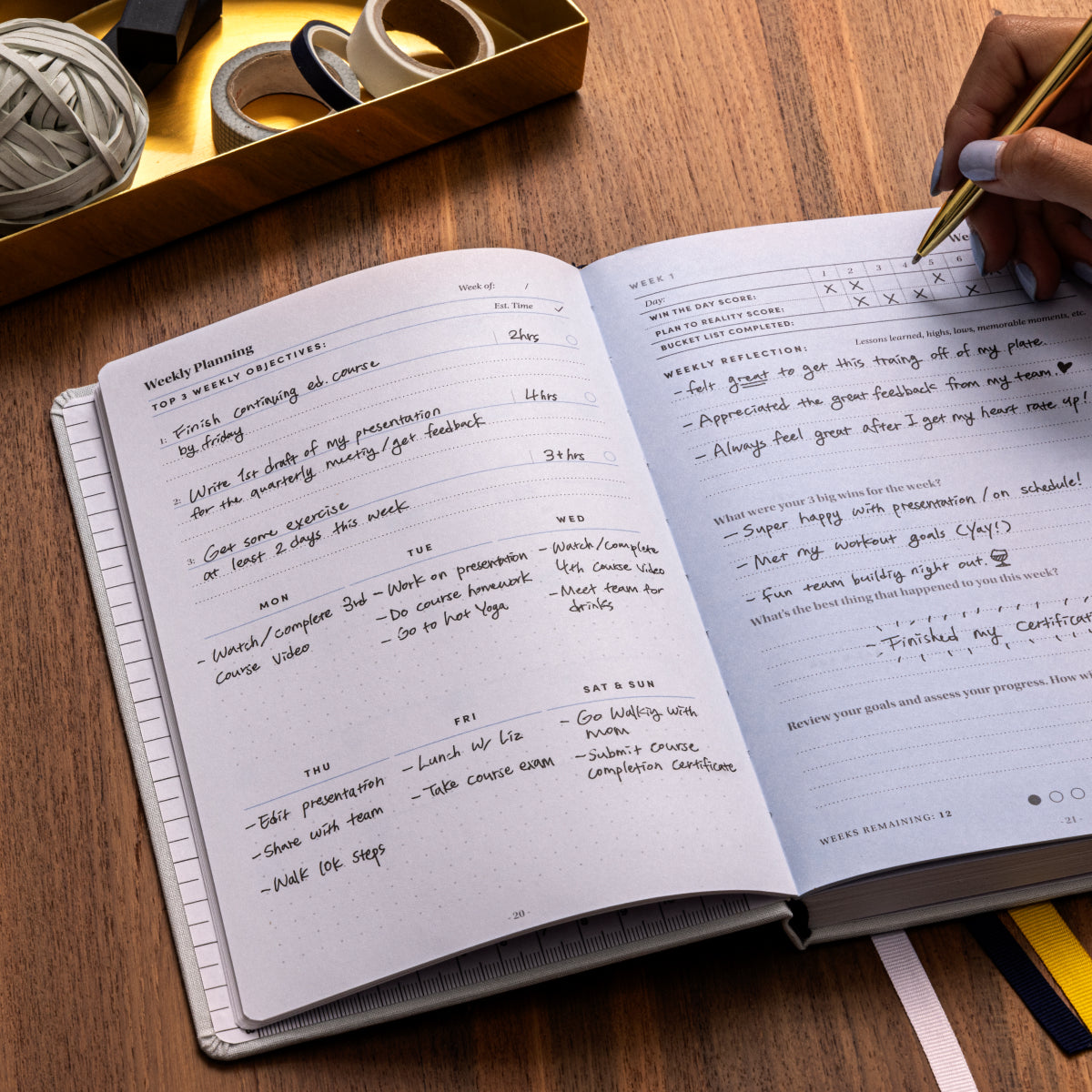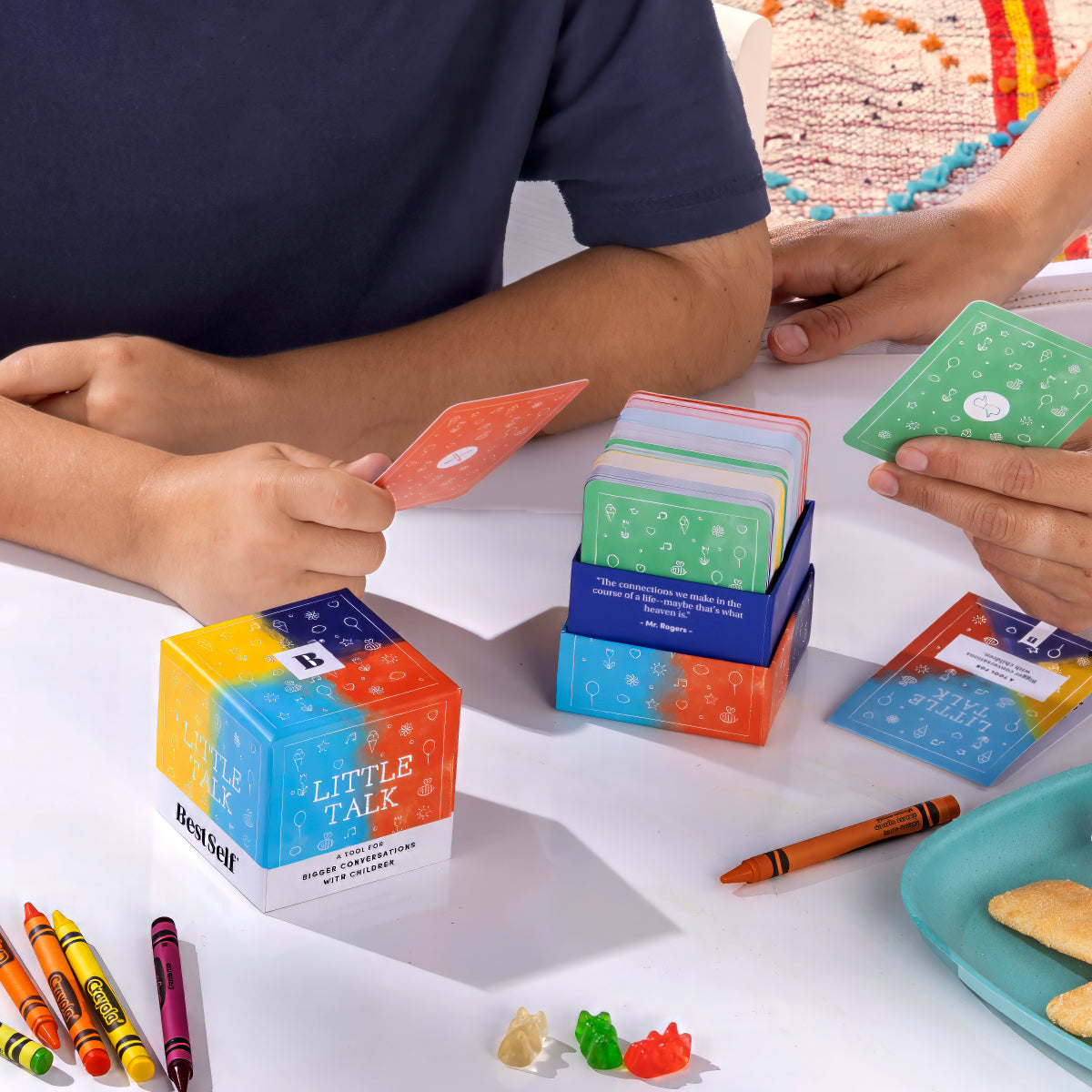If you want to create a deeply connected, long-lasting partnership, this advice can feel counter-intuitive. How can putting yourself first be the key to a thriving relationship?
Here’s the thing...
We’ve been conditioned to believe that putting ourselves first is ‘selfish’. As a result, it’s not uncommon for people to have a tendency to put others’ needs ahead of their own. We’ve been told that this behavior makes us kind, loving, and giving.
However, giving is just one side of the coin. If we give to the point of not allowing ourselves to receive the things we care about, we can become resentful, bitter, and even unhappy - none of which leads to a thriving relationship.
Turns out that putting your needs first is crucial for having balance in your life and in your relationships. If you don’t, you’ll run into burnout at work, home, and in general - because you’re filling from an empty cup.
Prioritizing your needs doesn’t mean you’re in total disregard for others’ feelings and needs! It means you’re putting your oxygen mask on first— so you are better equipped to help others.
But how do you do this in practice?
This article contains five proven strategies you can try today...
1. Cultivate self-awareness.
Self-awareness is the first step. Being aware of your needs is crucial. Knowing your needs allows you to operate at your highest potential. Allowing you to live a happier, more fulfilled life.
Once you’ve clearly established your needs you can begin to set boundaries and balance your life accordingly.
Consistently denying your own needs or putting them last is self-betrayal. When you betray yourself you end up unhappy. And often wondering why.
This concept might seem foreign to you. Many people glorify self-sacrifice. But the truth is, you cannot give your greatest without putting yourself first.
Need help discovering what matters most to you? Check out the Self-Discovery Deck. It includes 50 thought-provoking questions that guide you to be more self-aware, explore who you are, and what you want in life.
2. Make your needs a priority to prevent resentment.
When your needs are consistently last on the list, resentment builds. If you’re continually putting your partner’s needs before your own, you begin to resent your partner. You start to see your partner as a source of stress. You begin to see them as the reason your needs are coming in second.
The tricky thing is, your partner might not be aware this is happening. Or, your partner might be doing it unintentionally. Essentially you start to resent them for something you are responsible for. Which is your own needs.
It’s important for both of you to be doing regular self-evaluations. Notice what’s getting the most time and attention in your life.
Set the precedent from the start regarding your needs. Doing this helps avoid slipping into that space of resentment. Once you start to see your partner as a source of this feeling, it can be difficult to navigate out of this space.
The Relationships Journals contain plenty of practice designed to spark the insight and conversations that ensure your relationship thrives. Discover more here.
3. Prioritize self-care. Fill your own cup.
When you give too much of yourself, you start to feel depleted. Self-care is crucial for everyone. If you haven’t fulfilled your own needs, it makes it that much harder to fulfill the needs of someone else. There is nothing left to give.
Self-care doesn’t have to be luxurious (but can be if you’d like). There are so many ways to schedule self-care into your daily schedule.
Trust us when we say don’t skip it.
You can schedule 30 minutes of alone time right when you wake up or start implementing healthy sleep habits. Write it down and don’t allow yourself to skip it.
Build upon the habit and it will get easier.
Spending quality time on self-care isn’t something you only do occasionally. It’s critical for your well-being. It is essential for being your best self.
When your own cup is full you give from your overflow. Trying to do otherwise leads you to feel depleted, resentful, or unmotivated— and this can have a detrimental impact on the quality of your relationships.
4. Give 100%
Relationships thrive when both parties are giving 100%. Sometimes when life’s hardships come down on us, one partner might need to step in and give more. Generally speaking, when both parties are all in at 100—you experience the most out of your partnership.
When you have filled your own cup to 100%—you are able to give. You can fill from your overflow and not deplete yourself.
This ‘selfishness’ allows you to be a better partner. You simply cannot give what you don’t have.
Both parties need to be consistently filling their own cups. And yes, it does require some work.
It’s not 50/50. A loving partnership that lasts requires both people at 100.
5. Cut the risk of codependency.
Codependency is a space you fall into when you don’t put yourself first. Co-dependency can be relying on your partner for your entire source of happiness. Or where you derive your sole purpose from your connection together.
Codependency wears a lot of hats. It can look like the need to do everything together. Or determining your entire mood for the day based on your partner’s mood.
Emotions will waver from one minute to the next. We’re responsible for regulating our own feelings, but taking on our partner’s is a form of co-dependency. This can make it hard for you to regulate your own emotions while you are taking on someone else’s
Codependency can also be considered a one-sided relationship. One partner may give more of themselves or take on a certain role. This role can resemble a care-taker like a nurse or a parent. This partner believes their value is found in fulfilling this role.
The co-dependant may become resentful when they feel their efforts are not matched. Co-dependents often fall upset when the other person fails to reciprocate their same level of effort. Even if their partner didn’t ask them to take on the extra work.
They also can become addicted to being in a relationship— and will stop at nothing in order to stay in one.
Falling into the role of a co-dependant has many unfavorable results. The person who betrays themselves for the needs of their partner will never feel fulfilled.
The best way to avoid becoming codependent is to have a strong sense of self. Practicing putting yourself first gets easier over time. It is the best way to avoid slipping into a co-dependent state.
Have your own sets of activities, desires, and a sense of who you are outside your partner. This cultivates a healthy sense of self. Being able to come to the table of life fully and authentically.
You owe it to yourself to have moments of total separateness from your partner.
This way your relationship is not your only source of happiness. Yet in turn, this makes your relationship even stronger.
Putting yourself first enhances your relationship.
Putting yourself first isn’t selfish. It enables you to be a better partner.
Filling your cup should be a priority in your life regardless of your relationship status. But when you are completely filled from within, you have the capacity to give to your partner.
Operating at full capacity will make it easier to provide your partner with the best version of you. And when you are both showing up as your best self— you have better relationships.
Relationship Journals - For relationships that work
If you want to invest in the kind of relationship ‘work’ that deepens your connection and inspires partnership, the Relationship Journals are for you.
This 13-week, guided journey is designed to be taken with your partner. Each week is themed. Self-discovery activities open up conversations that lead to a deeper sense of appreciation, understanding, and ultimately love.
In a busy, hyper-distracted world, it’s easy to get caught in the superficial and surface-level.
The relationship Journals help you cultivate a level of depth, understanding, and togetherness that can help you co-create the relationship you always wanted.
Start your journey today when you buy your two-pack of journals here.









Leave a comment
This site is protected by reCAPTCHA and the Google Privacy Policy and Terms of Service apply.